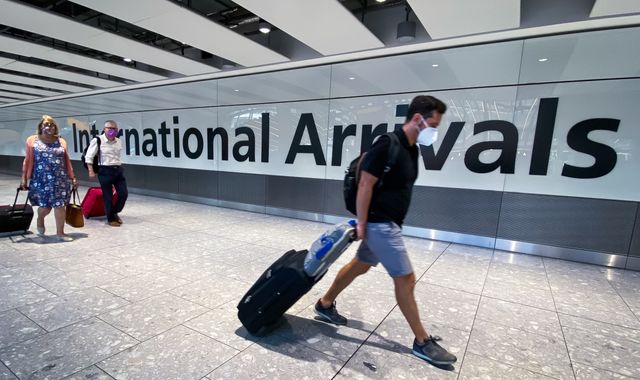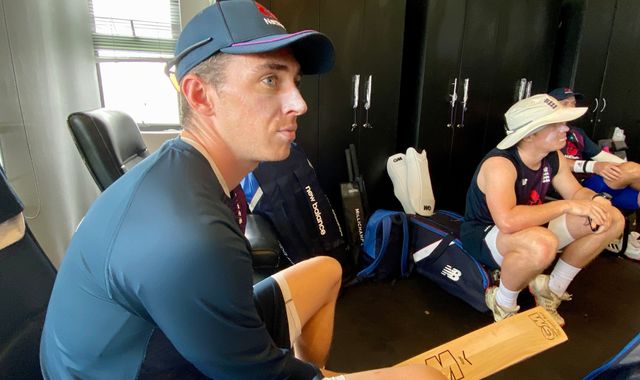COVID-19: Peak demand on hospitals might not come until next month, warns NHS Providers chief Chris Hopson
Written by News on 12/01/2021
Peak demand on hospitals might not be reached until “early to mid-February” leading to a “more extended period of pressure” on the NHS than had initially been hoped, MPs have been told.

Chris Hopson, the chief executive of NHS Providers – which represents all NHS trusts, said it was now “pretty clear” the COVID infection rate “is not going to go down as quickly as it did” during the first lockdown last spring.
Live COVID updates as Britons warned over lockdown
“It’s going to go down more slowly because of the increased transmissibility of the new strain,” he told the House of Commons health and social care committee on Tuesday.
Mr Hopson said hospitals “were hoping for a sharper peak that came sooner and shorter”, adding: “So something, for example, where we saw the peak and started to crest it in mid to late January.
“It now looks like the peak for NHS demand may actually now be in February.
“If that’s right, that’s going to basically mean there’s a higher level and a more extended period of pressure on the NHS than we were expecting even a week ago.”
According to government figures, there were 32,070 COVID patients in English hospitals on Monday, with 3,055 in mechanical ventilation beds.
Mr Hopson told MPs the NHS was now considering “a series of emergency contingency arrangements” in order to maximise hospital capacity where they are under the greatest pressures.
He warned that infection rates were rising “really very rapidly” beyond those areas in England where the new coronavirus strain had first spread.
“We’ve talked a lot about London, the South East and the East of England – but what’s very clear is infection rates are now rising really very rapidly beyond those areas, in the Midlands, the North West and the South West,” Mr Hopson said.
“That’s a particular worry because trusts in the Midlands and the North have got significant numbers of patients still in hospital from the second surge.
“And, in the South West, because of its smaller bed base, we know it’s less able to absorb pressure than the other regions.”
As England entered the second week of its third national lockdown, Prime Minister Boris Johnson warned that the government “may have to do more” if ministers feel COVID rules “are not being properly observed”.
Police officers are also set to be quicker to enforce coronavirus restrictions than they were during last year’s lockdowns.
Mr Hopson said the NHS was in a “slight limbo period” in which the impact of the Christmas period and the recent tightening of COVID measures had yet to be seen.
“We need the evidence to come through as quickly as it can about whether we do need tighter restrictions,” he told MPs.
“And clearly, if they are needed, the sooner we get them in place the better. But this is a really, really, incredibly serious position.”
Subscribe to the Daily podcast on Apple Podcasts, Google Podcasts, Spotify, Spreaker
Speaking after the comittee hearing, former health secretary Jeremy Hunt – who is now the chair of the health and social care committee – told Sky News: “The NHS has never had to experience anything like this.
“My judgement is that probably we will continue to find critical care, intensive care beds for the people who need it.
“Because the NHS is working so hard at the moment to try and solve that very issue. But it’s on a knife-edge.”
Earlier on Tuesday, crime and policing minister Kit Malthouse told Sky News that any toughening of COVID rules “very much depends on the numbers” of coronavirus cases, people being hospitalised, and deaths.
“We’re all, frankly, on tenterhooks to see how the impact of the restrictions that came in on Boxing Day will impact on numbers, particularly in London and the South East,” he added.
(c) Sky News 2021: COVID-19: Peak demand on hospitals might not come until next month, warns NHS Providers chief Chris Hopson







